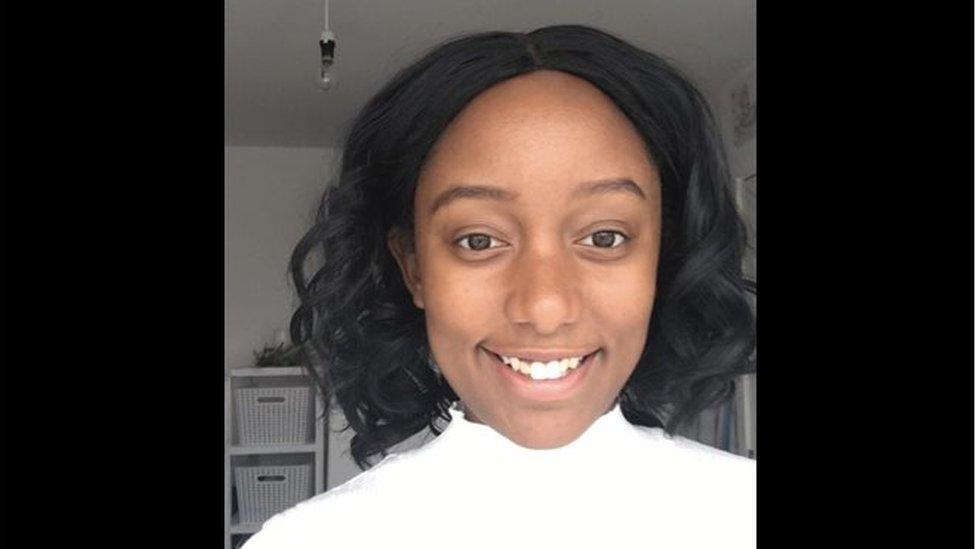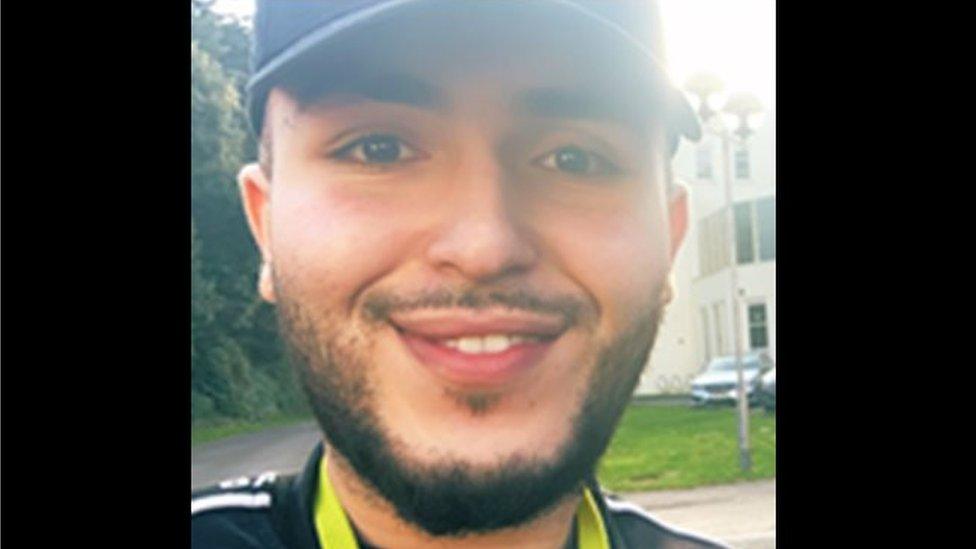Mental Health Act: 'I was sectioned and no one told me what was going on'
- Published

After three years, the government has released its long-awaited recommendations to modernise the Mental Health Act 1983.
The act is used to detain - section - someone if they are considered to be a risk to themselves or others.
Many of the recommendations focus on ensuring patients are seen as individuals who should be involved in discussions about their medication and treatment plans.
A large part of it is concerned with altering the system to make it less discriminatory towards black people, who are more likely to be detained, and to be more understanding of cultural differences.
Ashley and Raf share their experiences of being detained under the act.
'No one told me what was going on'
Ashley, a young black woman, from Hertfordshire, works as a learning support assistant. She was detained under the Mental Health Act twice, once in January 2018 and then in June 2018. On both occasions the 23-year-old experienced psychotic episodes.
"The first time I was detained, I was experiencing delusions and acting out of character," she says.
"I had lots of energy and it was hard for people to restrain me because I was a bit aggressive. I had racing thoughts and I was getting paranoid delusions that my parents were being controlled by other people.
"I tried to find comfort, reading my Bible, but I was reading it frantically and didn't really know what I was doing."
Ashley's family became concerned for her safety and called an ambulance.
"I remember when the paramedics came, I just thought 'who are these strangers?'
'Quite disturbing'
"For a while I was calm, but then I started shouting and screaming and being aggressive, so they took my parents into another room and before I knew it, they were saying that they were going to take me to hospital."
She says she wasn't told what was going to happen to her.
"It was quite disturbing. I wasn't told how long I would be in hospital for - I thought maybe a day or two and it ended up being about three weeks."
While there, Ashley refused to drink or eat and was force-fed.
"They had to put an injection in my spine to do that. I was really unaware of what was happening until I started feeling something in my throat and I realised they must have done it already.
"In that moment I really didn't like it, but now I look back and think, 'well, they were trying to do what's right for me'."
Ashley says the staff were supportive and "did their best" but they spoke to her parents about her treatment, rather than discuss it with her.
"When it comes to the reforms, I think the most important thing is to give patients more input in what type of treatment they get," Ashley adds.
"If people are showing signs of feeling better, talking to them about how they can take responsibility for their care will make a huge difference."
'I'm praying, I'm not having a psychotic breakdown'

Raf, 27, spent five years in a forensic mental health unit receiving treatment for schizoaffective disorder which has similar symptoms to schizophrenia and bipolar disorder. He had been experiencing hallucinations at the time.
He was transferred to the unit from a young offenders institution aged 19 following a conviction for false imprisonment and grievous bodily harm. He now advises the board of Cygnet Health - a mental health service provider.
As part of the review, Raf, who is Muslim, chaired the Asian and Other Ethnic Minority Topic Group to consider how to support the disproportionately high number of people from BAME backgrounds detained under the act.
"It was quite a traumatic experience," he says. "There were stupid rules. The TV had to go off at 23:00 and I remember falling out with staff because phone calls were limited. You'd be in the middle of talking to your mother and staff would hang up the phone."
He says this environment and the fact he was not always central to conversations about his treatment made him challenge his care, which could be misconstrued as aggressive behaviour and could lead to physical restriction or being put into a seclusion or de-escalation room.
'Barriers in the treatment'
"I spent quite long periods in seclusion with no books allowed, no televisions, no radio," he says. "One of the key things we've been advocating for is access to outdoor space so people have access to fresh air.
"When I was in seclusion they took a blood test and told me 'you've been here so long it's affected your vitamin D levels'."
He says most mental health hospitals use these rooms.
"If you don't have one you won't be tempted to use it," he says. "Restrictions create difficulties in the therapeutic relationship and that creates barriers in the treatment."
As a Muslim, Raf says a lack of cultural awareness also impacted his care.
"I pray five times a day and a staff member who was new, so didn't know my care plan, saw me praying and thought I was speaking to myself and offered me medication.
"Just because I'm praying, I'm not having a psychotic breakdown. I feel there's a lot more work to do in that area."
He says spirituality is often important to patients and if that's neglected "that's a barrier to recovery".
Raf says it is essential the individual is at the centre of their care.
"It might not seem a big deal - the staff turned off the TV, ended the phone call - but it's the accumulation.
"Looking at it from the other side, the staff don't realise what they're doing is wrong. When staff are working within a system they're doing what they're told and it's these instances that need addressing.
"It's about challenging the service and challenging the system."
For more disability news, follow BBC Ouch on Twitter, external and Facebook, external and subscribe to the weekly podcast on BBC Sounds.
